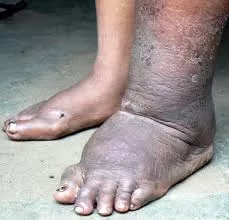A recent study set to be presented at the European Congress of Clinical Microbiology and Infectious Diseases (ECCMID 2024) has unveiled a concerning association between tuberculosis (TB) and an increased risk of various types of cancer. This groundbreaking research utilized data from the National Health Insurance Service-National Health Information Database of South Korea, spanning from 2010 to 2017, to draw comparisons in cancer incidence rates between TB patients and a matched control group from the general population.
In the study, researchers identified patients with TB through specific disease codes or by administering two or more TB medications for over 28 days. The control group was meticulously selected to match the TB patients based on sex, age, income level, residence, and the year of index at a 1:5 ratio, ensuring a robust comparative analysis.
The cohort included 72,542 TB patients and an equal number of matched controls, with an average follow-up period of approximately 67 months. The findings revealed that the incidence of cancer was significantly higher among TB patients, with an alarming 80% increase in the risk of all cancers combined.
More specifically, the study highlighted that TB patients faced a 3.6 times higher risk of lung cancer, a 2.4 times higher risk of blood cancers, and a 2.2 times higher risk of gynecological cancers. Additionally, increased risks were noted for colorectal, thyroid, and esophageal/stomach cancers.
The study also identified several independent risk factors that contributed to the heightened cancer risk among TB patients. These included current smoking, heavy alcohol consumption, chronic liver disease, and chronic obstructive pulmonary disease (COPD).
This research underscores the urgent need for healthcare professionals to recognize the potential long-term consequences of TB infection and to implement targeted screening and preventive measures for cancer among TB patients. The findings could have significant implications for public health strategies aimed at improving patient outcomes and reducing the burden of cancer in populations affected by tuberculosis.
As the study is set to be presented at ECCMID 2024, it may pave the way for further investigations into the interplay between infectious diseases like TB and cancer risk, urging a more integrated approach in patient care and management.
For further details on the study, visit EurekAlert.












